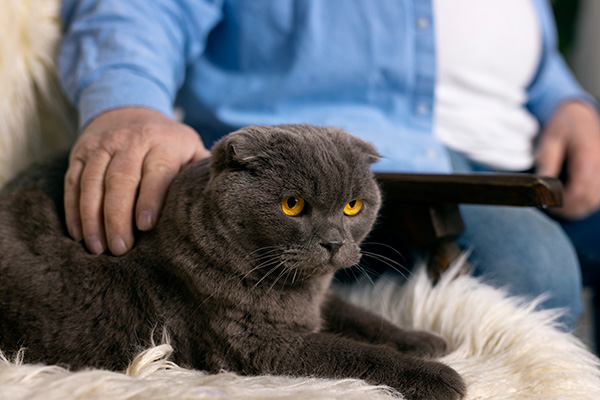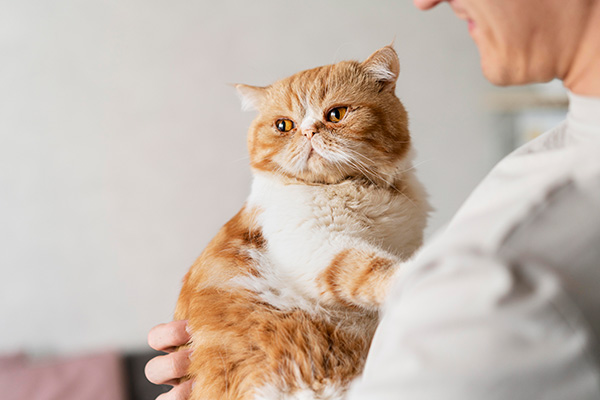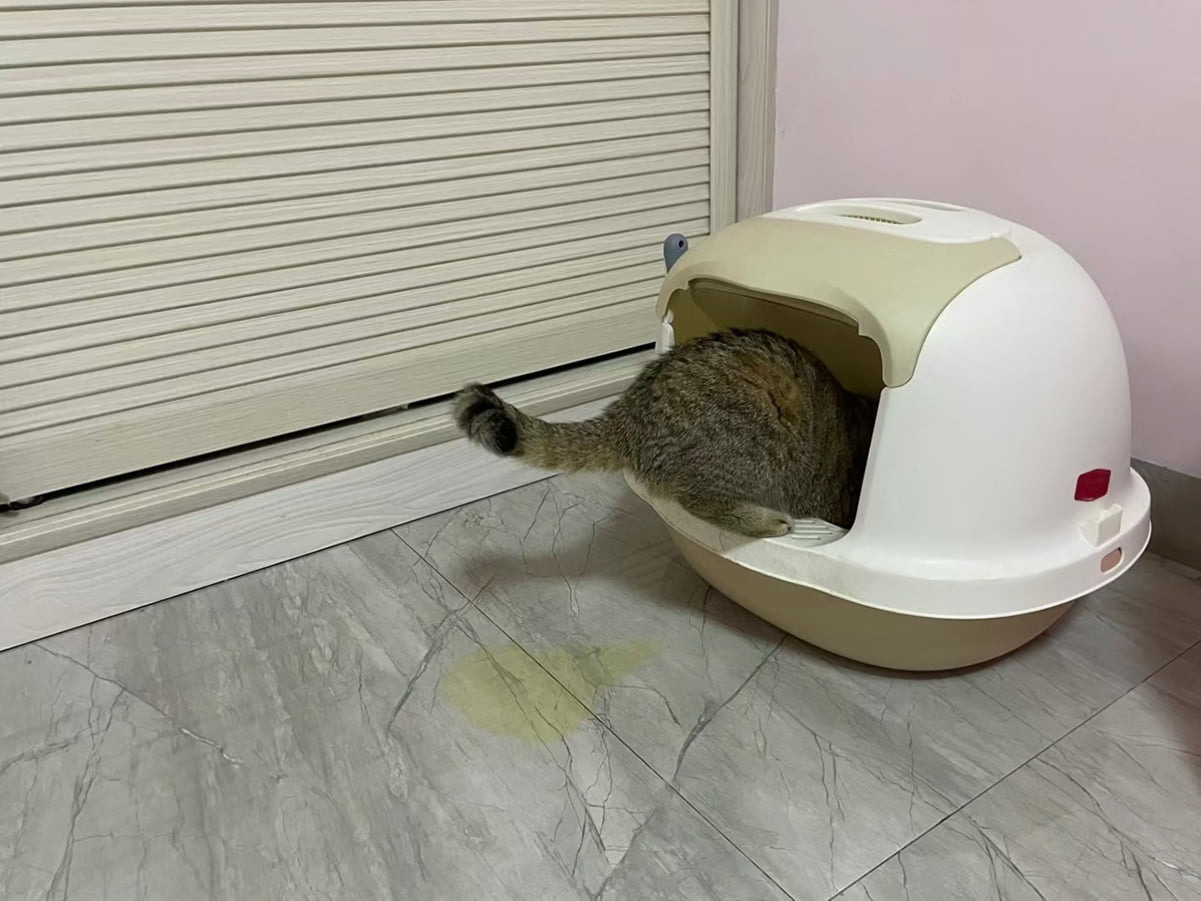Cats bring immeasurable joy and companionship into our lives, becoming beloved members of our families. As they grow older, recognizing when a cat reaches its senior years is vital to providing the best care during their golden years. When is a cat considered a senior? This question is essential for cat owners who want to provide the best possible care for their feline friends.
When is a cat considered a senior
Typically, cats are considered seniors between 7 and 10 years old, although factors like breed, size, and individual health can affect this timeline. Larger breeds often show signs of aging earlier than smaller breeds, and as your senior cat ages, they can be affected by its overall health and lifestyle. Cats with chronic medical conditions, like kidney or dental disease, may age faster than those who are perfectly healthy. Conversely, cats that maintain a healthy weight and receive regular vet care may not exhibit signs of aging until they are older.
Signs Of Aging In Cats
An aging cat shows common signs, including weight changes, less grooming, and changes in litter box habits. Aging cats begin to experience weight loss or gain, which are important indicators of their health status. Unintentional weight loss can often signal underlying health problems such as kidney failure, hyperthyroidism, or dental disease.
These changes in a senior cat's body often accompany other symptoms that can help cat parents identify potential or emerging issues early. Your cat's fur might become matted or oily due to decreased grooming habits, or senior cats' claws may become thicker and more brittle. Behavioral changes like more frequent vocalization or signs of confusion can also be indicators of cognitive problems such as feline senility.
Physical Changes

Hair Condition
As cats age, they often groom less frequently, which can lead to noticeable changes in their fur's condition. You might observe that their coat becomes more matted or even oily as natural oils build up.
Graying fur and decreased mobility
Graying of a cat's fur, especially around the muzzle and eyes, and coarser texture are visible signs, while decreased mobility due to conditions like degenerative joint disease can cause significant pain in many cats, making it harder for them to jump or climb.
Weight fluctuations
Weight fluctuations are common in aging pets. Some experience weight loss due to decreased appetite or medical conditions like kidney disease, while others gain weight from reduced activity levels. Monitoring their body weight regularly is crucial to catching unintentional weight loss or gain early and adjusting their diet accordingly.
Behavioral Changes
Cognitive Dysfunction
Cognitive dysfunction in senior cats can lead to significant behavioral changes, including excessive meowing, disorientation, and reduced interaction with family members. Cognitive issues require prompt veterinary attention to manage symptoms effectively
Changes in Sleep Patterns
Older cats tend to sleep more during the day and become more restless at night. This behavior change can be a sign of cognitive dysfunction or feline senility, which impacts a senior cat's mood and overall quality of life. Excessive meowing at night can also be a symptom of mental confusion, often seen in aging cats.
Health Problems

Kidney Disease
Older cats may experience various symptoms, including increased thirst, reduction in weight, and lethargy. Kidney failure is a common issue, so regular vet care is essential for early detection and management. High blood pressure often accompanies kidney disease.
As cats age, their susceptibility to kidney and heart disease increases, often manifesting through signs like unintentional weight loss and decreased energy levels. Despite these challenges, providing mental and physical stimulation, maintaining a consistent diet and hydration routine, and ensuring regular vet care can help keep a senior cat happy and healthy.
Diabetes
Diabetes is another condition that can affect elderly cats, leading to weight loss, increased thirst, and changes in appetite. A balanced diet, depending on your senior cat's age, and regular vet check-ups are crucial in managing diabetes and keeping your aging pet's heart.
Preventive measures, such as maintaining a balanced diet tailored to a senior cat's needs, can significantly impact their well-being. Providing geriatric cats with the right nutrients helps support their aging bodies and prevents potential or emerging issues. Providing easy access to food and water bowls can assist older cats in maintaining their health.
Arthritis
Elderly cats may have trouble jumping, using stairs, or even walking. Arthritis, also known as degenerative joint disease, is a common cause of mobility problems in older cats. It affects over 90% of cats over the age of 10. Arthritis causes significant pain and can lead to decreased physical activity, making it essential for cat owners to provide geriatric care geared toward managing discomfort.
Dental Disease
Dental disease is prevalent in older cats, impacting more than 80% of those over five years old. Symptoms include trouble eating, bad breath, and weight loss. Routine dental check-ups are essential for maintaining the health of senior cats.
Inappropriate Elimination

Eliminating a senior cat in inappropriate places is a health concern that cat owners should be aware of. Ensuring litter boxes are accessible, clean, and comfortable can help address this issue. If a senior cat starts peeing or pooping outside the litter box, a veterinary check-up is essential to diagnose and address any medical conditions and manage the behavior.
How to Keep My Senior Cat Healthy
Dietary Needs of A Senior Cat
As cats age, their dietary needs change, often requiring lower-calorie diets and specific nutrients to support their aging bodies. Specialized senior cat foods can provide these nutritional adjustments. With a slower metabolism and reduced activity levels, older cats are prone to weight gain, making a lower-calorie diet necessary to manage their weight effectively.
An aging cat also benefits from diets that are higher in easily digestible proteins to maintain muscle mass and antioxidants to support immune function. Omega-3 and omega-6 fatty acids help maintain healthy skin and coat, while added fiber aids digestion and prevents constipation. These specialized foods often have reduced phosphorus levels to support kidney health and may include supplements like glucosamine and chondroitin to support joint health and alleviate pain from Arthritis.
Hydration and Nutrition
Ensuring your aging pet stays hydrated can prevent kidney issues and other health problems. Wet food and multiple water sources around the house can help encourage hydration. Proper nutrition and hydration are key to maintaining a senior cat healthy.
Regular exercise and mental stimulation
Regular exercise and mental stimulation are vital for the well-being of senior cats. Engaging them with interactive toys and gentle play helps keep them physically active and mentally alert.
Regular grooming and brushing
Regular grooming and brushing with cat brush help maintain your cat's fur, skin, nose, eyes, and ears in good condition. For senior cats, this routine is particularly important as they might struggle with self-grooming due to reduced mobility or arthritis. By grooming and brushing your cat, you help prevent issues like matted or oily fur, which can lead to skin infections and other health problems. Moreover, consistent grooming sessions present a valuable opportunity to inspect for any irregularities, such as lumps, bumps, or parasites, thereby ensuring prompt detection of any developing issues.
Environmental Adjustments
Creating a comfortable living space will make your cat happy. Ensure accessible resting places and litter boxes, and provide ramps or pet stairs to help your senior cat adjust to the changes. Place food, water bowls, and litter boxes in easily accessible locations to prevent them from navigating stairs or long distances.
Create a safe environment free from hazards to help them move around comfortably. Incorporating mental and physical stimulation and maintaining easy access to food and water bowls can keep your senior cat happy and healthy, reducing stress and helping geriatric cats adjust to their changing needs.
Regular Veterinary Care
Senior cats should see the vet at least twice yearly for comprehensive health check-ups, even if they seem perfectly healthy. Regularly scheduled routine examinations aid in early detection and effective management of emerging issues. Early detection of a hiding illness is key to managing the well-being of your older cat and ensuring they enjoy a high quality of life.
With proper care, attention to changes in behavior and health, and regular vet visits, your feline friend can enjoy their golden years happily and healthily. By understanding the specific needs of aging cats and making necessary adjustments, you can help your feline friends live a comfortable and fulfilling life as they age.
